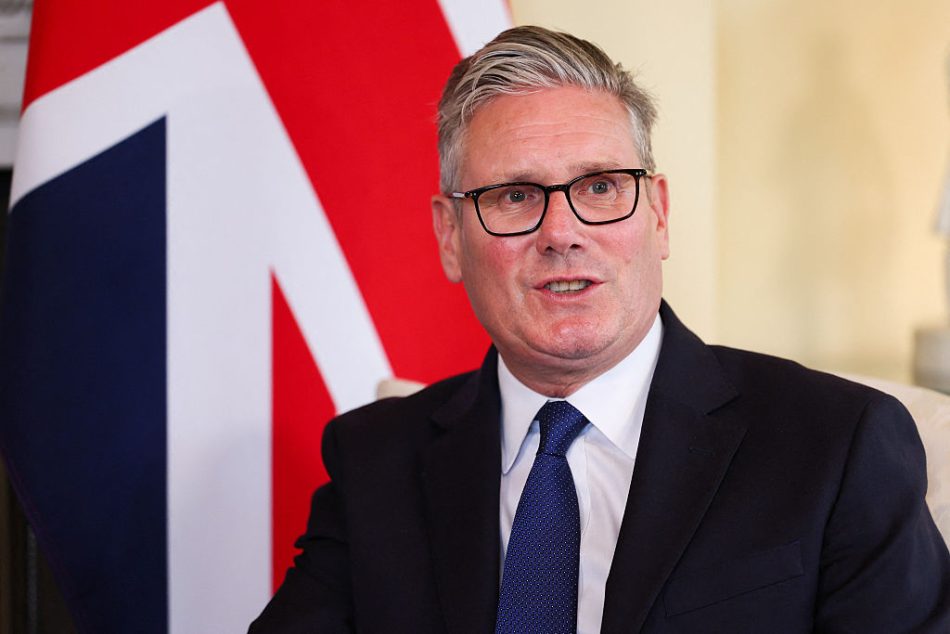How far should a government go to stamp out people smuggling? This month, the Home Office is set to introduce powers that will allow courts to place expansive restrictions on those suspected of people smuggling and other serious crimes. Penalties are set to include social media bans, restrictions on banking and even curfews, imposed pre-arrest. Infringement of these court orders would be a criminal offence punishable by up to five years in jail.
Some have welcomed this as tough action from the Labour government; finally, you may think, they’re doing something about illegal immigration. But tough policies aren’t always good policies. The mooted powers would allow the police to shut down a suspect’s social media accounts, freeze their bank accounts and even track and limit their physical movements, all before there’s enough evidence to mount an arrest. Private companies like banks and social media platforms would be required to enforce these restrictions. To me, this proposal raised the chilling spectre of another ‘tough’ policy: China’s social credit system.
I am not suggesting that Labour is about to introduce a British social credit scheme
First, a caveat. Social credit has been one of the most misreported stories about China in recent years (and you can listen to my podcast, Chinese Whispers, to understand how the hyped-up reports came about). Any Chinese person can tell you that there is no single score, à la Black Mirror, that dictates their lives. Nevertheless, what does exist is still a scheme that allows authoritarian overreach and an inconsistent and arbitrary application of the law, which dishes out wide-ranging punishments that equate to modern day cancellation.
The scheme mainly targets unscrupulous companies and tries to ensure that any lawbreakers in one part of China will be placed on a blacklist and limited in their freedoms in other parts of the country. Infractions include not meeting food safety standards or committing fraud.
But individuals also fall foul of the system, and it is so fragmented and vague that citizens are often left in the dark as to their rights. Tax evasion, smuggling, and fraud are all violations that will land you on a blacklist in some provinces, but not in others. Some blacklists require court rulings, but not all. Local authorities can also add their own violations, which means criminals are punished quickly, but with little scrutiny. During the pandemic, when China had a ‘zero-Covid’ policy, some local authorities blacklisted non-mask-wearers, but not others. Under a system that respects the rule of law, citizens know what is illegal and what isn’t, and can rely on a consistent application of the law; in China, the social credit system has created a shadowy parallel to the legal system that is rife for accidental or deliberate abuse.
Punishments for the blacklisted include: being banned from air travel or high speed rail; having your children banned from attending private school; your bank accounts being frozen. These collateral punishments are applied with little communication – and those who try to appeal the decision find a bureaucracy that is Kafkaesque in its slowness.
I am of course not suggesting that Labour is about to introduce a British social credit scheme. The Home Office’s suggestions target only those suspected of serious crimes, and the restrictions are only intended to be a pre-arrest arrangement. Britain’s legal system is also mature and (most would say) independent of politics in a way that China’s is not. Law enforcement agencies generally apply the law without supplication to an authoritarian government, and the British media is much more capable than China’s of calling out abuses of power, judicial or political.
But there are some troubling similarities in the principles at play. Restricting the liberties of those who haven’t been charged or even arrested is a move towards social credit’s arbitrary application. The extensive impact on various parts of one’s life – enlisting the help of private companies too – opens up a new world of collateral punishment.
Will those placed under court restrictions be able to appeal the decision – and promptly – before their social media accounts are frozen and internet access is cut off? Will all law enforcement agencies that can apply for this power be held to the same threshold of evidence required to make such a request? Will courts have explicit and consistent guidance on what is an appropriate scale – or area – for the package of punishments, especially as judges will be deciding on a case-by-case basis?
Democracies can slide into authoritarianism through complacency (recently and vividly demonstrated by some of the government’s Covid policies). Of course people smuggling and other serious crimes need to be rooted out, but we mustn’t hand over our own liberties and allow the erosion of our civil rights in the name of security. That is the very trade-off that the CCP uses to justify its rule. We can already see where it leads.








Comments